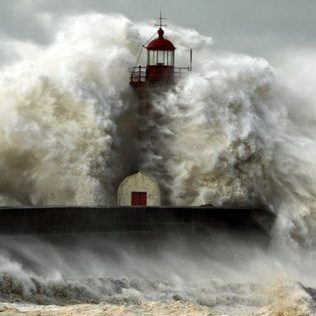by Jeremy Brecher in Znetwork…The most blatant marker of the polycrisis is the burgeoning of war and preparation for war.
Positive Pathways report
by Michael Lawrence and Megan Shipman …..The Cascade Institute’s analysis on positive pathways through polycrisis
The view from Nairobi-Washington
by Tim Sahay and Kate Mackenzie in Phenomenal World…It is good for Southern elites to win such technology investments. But while the New Washington Consensus delivers full employment and trillions in deficit-financed welfarism and public investments in the North, the Nairobi-Washington vision for which Ruto is a stand-in is insufficient for fostering prosperity across the South—where debt-stressed countries with soaring joblessness are imposing class war austerity and privatization, amid Western intransigence in delivering touted financial architecture reforms.
The disruption nexus
by Roman Krznaric in aeon.com….Polycrisis. Metacrisis. Omnicrisis. Permacrisis. Call it what you like. We are immersed in an age of extreme turbulence and interconnected global threats. The system is starting to flicker – chronic droughts, melting glaciers, far-Right extremism, AI risk, bioweapons, rising food and energy prices, rampant viruses, cyberattacks.
Are we doomed? Here’s how to think about it
by Rivka Galchen in The New Yorker…..Climate change, artificial intelligence, nuclear annihilation, biological warfare—the field of existential risk is a way to reason through the dizzying, terrifying headlines.
A review of ‘navigating the polycrisis’: A map of collapse, utopia, and the many paths in between
by Ben Shread-Hewitt in Resilience.org…The Polycrisis is the breakdown of our future.
More in this category
What is the “Global Polycrisis” and how should journalists be covering it?
Watch EJN’s 2023 #EarthDay webinar on the global polycrisis — what does this newly-popular term mean, why is it important for climate and environmental journalism and how can reporters uncover relevant angles and story ideas?

Global polycrisis as a pathway for economic transition
By Zack Walsh, Polycrisis Transition Consultancy….This article is part of an ongoing collaboration between the United Nations Development Programme (Bureau for Program & Policy Support’s Strategic Innovation Unit & the Inclusive Growth/Chief Economist) and One Project. The purpose of the collaboration is to connect expertise in new economics with an emerging understanding of the global polycrisis. In this first article, we synthesize existing work and identify potential connections between these two fields. We seek to identify economic alternatives that provide systemic and proactive responses to the global polycrisis and propose potential supporting roles for development organizations like the UNDP.
On the ‘Polycrisis’: Part I
by Bo Harvey….“There is no single vital problem, but many vital problems, and it is this complex intersolidarity of problems, antagonisms, crises, uncontrolled processes, and the general crisis of the planet that constitutes the number one vital problem.”3

Navigating the polycrisis–life in turbulent times
By Michael Lerner, Angle of Vision…The polycrisis has many names—cascading crises, the metacrisis, the permacrisis, the great unraveling, the great simplification, “the end of the world as we know it” [TEOTWAWKI], and more. In Latin America it’s called “eco-social collapse.” The French call it “collapsologie.” Or one can simply call it turbulent times or a rapidly changing world.

The Long View Vol 22
Since the Long View started as a newsletter almost 2 years ago, our aim has been to curate the highest quality polycrisis news, research, and analysis to support this growing learning community. As this polycrisis work has gone global, so has the volume of content, debate over its relevance, and evolving language. Here are this month’s top picks of polycrisis news, curated by Omega Program Director Stanley Wu. It was quite a month, worldwide. These selections were chosen to help foster thinking about these times and how we consider resilience in light of the global polycrisis.
The Great Simplification: What HS leaders need to know about the future of energy with Nate Hagens
Nate Hagens, Director of the Institute for the Study of Energy and Our Future, offers a valuable, insightful, and cautionary presentation on energy consumption and the alarming challenges society will face in the not-so-distant future.
The 12 paradigm shifts that are changing our world: Peter Leyden and Gerd Leonhard
Peter Leyden and Gerd Leonhard take a closer look at a dozen of the most important paradigm shifts of the 2020s that everyone should better understand.
Our big problem is not misinformation; it’s knowingness
Oedipus’ fatal flaw is that he refuses to accept new information, because he always assumes he already knows what he needs to know
Crazy Town: Episode 65. Why the polycrisis is a statistical anomaly: The willful delusions of the world’s leading pseudointellectual
Meet Steven Pinker, whose denial of limits increases the likelihood of his worst fear: the end of the Enlightenment.

The Displacements
As 'The Displacements' slows down and sinks into the frustrations of life in a massive relief camp, the story recalls the Houston Astrodome after Katrina — except that here we witness what one character sardonically labels a 'catastrophe of whiteness.'… What unfolds...

Whose polycrisis?
Unless the Polycrisis seriously questions the drivers of power and finds ways of challenging them, it risks becoming yet another neoliberal policy buzzword.

Reflecting on the Polycrisis: From under the table whispers to public conversations
https://www.youtube.com/watch?v=d6NAtDt3xGo The Resilience Funders Network brings you a special conversation with Nate. Nathan J. (Nate) Hagens is a leading public intellectual working at the nexus of multiple components of the polycrisis and threats to civilization...

Is “Polycrisis” the right word for our times?
I’ve noticed a marked increase in the use of the term “polycrisis” over the last year, at least in US/Western media

The Year of the Polycrisis
The term polycrisis is not and won’t be uncontested. Nor will its companion term, “resilience,” which we also use. Over time, both terms will be adopted as forms of greenwashing. They will become overused just as “sustainability” became overused.

So we’re in a polycrisis. Is that even a thing?
A lot of the folks trying to sound profound in the hallways at the World Economic Forum in Davos this week had just the word: “Polycrisis.” That’s what we’re in, apparently.


